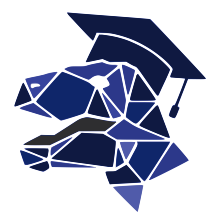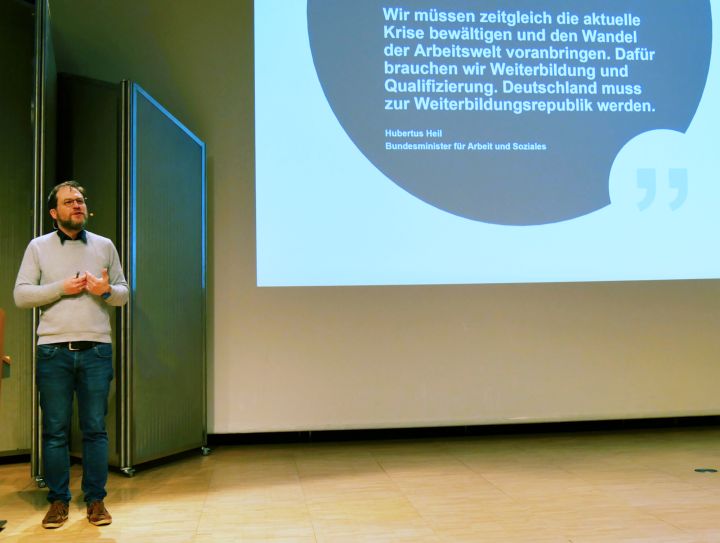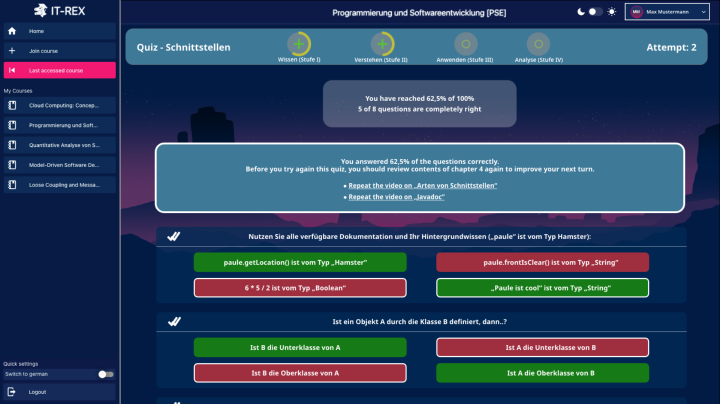Knowledge transfer between industry and universities was a focus of the co-located conferences "Software Engineering" (SE23) and "Software Engineering im Unterricht der Hochschulen" (Software Engineering in the Higher Education Classroom) (SEUH 2023).
Fittingly, Prof. Stefan Wagner focused entirely on "Software Engineering Continuing Education for Students and Industry" in his keynote address on Thursday. Wagner explained, on the one hand, the offer of a modular "basic training in software engineering" for company employees with existing university education. After one year of on-the-job lectures and exercises, final exams and two project phases, those trained can work on software projects.
Wagner also presented the Artificial Intelligence Software Academy (AISA), an institution funded by the Baden-Württemberg Ministry of Science, Research and the Arts. Here, students and doctoral candidates of all subjects are to acquire basic skills in artificial intelligence, software engineering as well as applications and acquire flexible microdegrees.
An intelligent tutoring system for IT-REX
The concept of an intelligent tutoring system (ITS) for the e-learning platform IT-REX ("An Intelligent Tutoring System Concept for a Gamified e-Learning Platform for Higher Computer Science Education") could also benefit from AI and language models. Together Prof. Uwe Breitenbücher and the doctoral students Niklas Meißner and Sandro Speth have now extended the platform originally presented in 2022. Participants in Session 3 (SEUH) on Friday learned how the electronic learning platform will realistically assess learners' knowledge levels in the future, provide motivating and learning-field-oriented feedback, and play out individually adapted teaching materials.
Human tutors could thus concentrate on higher learning target levels; students would also receive added value in face-to-face teaching through detailed feedback. However, the extent to which language models reliably evaluate student free-text responses still needs to be clarified–Speth already qualified in the run-up to the conference, thus anticipating one aspect of the discussion "ChatGPT - Impact on SE Teaching" planned for the conference program.
Java programming education using the objects-first approach with mini-programming worlds
However, there is less doubt about the benefits of the "object-first" approach for inexperienced students. They apparently learn programming best when they solve tasks with a cleanly defined software system and its API: This promotes actual object understanding instead of overwhelming learners with boilerplate code and complex concepts.
At the University of Stuttgart, such an approach has been used successfully for several semesters: In a digitized bachelor's lecture, combined with gamification and mini-worlds, such as an appropriately modernized hamster simulator.
Speth reported on this in "Session 2" of the SEUH on Thursday under the title "Teaching Object-Oriented Programming with the Objects-first Approach: An Experience Report".




